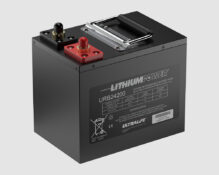Lead batteries deserve a better reputation and appreciation in the energy storage mix, the newly appointed chairman of global battery research hub the Consortium for Battery Innovation (CBI) has told BEST.
Dr Christian Rosenkranz made the statement in the days after replacing CBI’s inaugural chairman Dr Tim Ellis on 1 January.
Rosenkranz is also calling on governments and industry to work more closely to accelerate the development of advanced battery technologies as he aims to build on the success of CBI since its formation in 2019.
Rosenkranz told BEST: “The biggest challenge for us as an industry is to effectively communicate to decision makers on the regulatory side that our societies need multiple electro chemistries with different strengths to complement each other to achieve our sustainability goals. Lead batteries deserve a better reputation and appreciation in the energy storage mix.”
He added: “I see the biggest opportunities for lead batteries in the next decade will be in playing an essential role in the decarbonisation of our society and serve as a reliable, cost efficient and sustainable solution for stationary and automotive applications.”
RosenKratz is vice president industry and governmental relations EMEA of CBI member and battery manufacturer Clarios, which is leading development and innovation of AGM (Absorbent Glass Mat) lead batteries.
Dr Rosenkranz said: “As we approach the COP26 [2021 United Nations Climate Change Conference] talks later this year we should be pressing for more commitments to support battery research into new and existing technologies in partnership with industry.
“At the Consortium we are conducting and supporting innovative research projects in Europe, the United States and Asia which will significantly improve the performance of advanced lead batteries. But we need to see a concerted effort to support further research efforts to support high-performance, reliable and cost-effective batteries for the future.”
CBI is working with researchers, testing institutes, battery manufacturers and automotive companies across the globe to achieve the market-driven research goals outlined in its 2019 technology innovation roadmap.
Those goals include: improving dynamic charge acceptance, and increasing partial state of charge (PSoC), and boosting cycle life of lead batteries in stationary applications.
The new technical program due to be announced this year will have a strong focus on lead batteries used to support utility and renewable energy storage.












